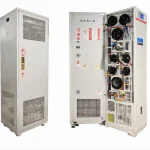Unsure of what UPS to buy? This comprehensive guide explores everything you need to consider to pick the perfect Uninterruptible Power Supply for your home or business.
Choosing the Right UPS for Your Needs: A Comprehensive Guide
In today’s digital world, power outages can be more than just an inconvenience. They can disrupt workflows, damage equipment, and lead to data loss. That’s where a Uninterruptible Power Supply (UPS) comes in.
A UPS acts as a shield against power disruptions, providing temporary battery backup to your critical electronics during outages. But with a variety of models and features available, choosing the right UPS can feel overwhelming.
This comprehensive guide will equip you with the knowledge to make an informed decision. We’ll delve into the key factors to consider, explore different UPS types, and answer frequently asked questions to empower you to find the perfect UPS for your needs.
Key Considerations When Choosing a UPS
Before diving into specific models, let’s explore the crucial factors that will influence your UPS selection:
1. Power Requirements:
- Identify Your Devices: The first step is to determine the equipment you need to protect. This could include computers, servers, networking devices, point-of-sale systems, or even home entertainment setups.
- Calculate the Load: Once you have your list, calculate the total wattage requirement. Look for the wattage rating on your device’s power supply or user manual. Alternatively, some devices display real-time power consumption. Add the wattage of all the devices you plan to connect to the UPS.
- Consider Startup Surge: Certain equipment, like computers, experience a momentary surge in power draw when starting up. A good rule of thumb is to factor in a 20-25% buffer on top of your total wattage to account for this surge.
2. Runtime Needs:
- How Long is Critical? Runtime refers to the duration your UPS can provide battery power during an outage. Consider how long you realistically need your equipment to stay operational.
- Essential vs. Desirable: For critical business operations, prioritize longer runtimes to ensure a smooth shutdown or completion of tasks during extended outages. For home users, a shorter runtime might suffice for saving work or gracefully shutting down a computer.
3. UPS Features:
- Sine Wave vs. Simulated Sine Wave Output: Most modern devices require a pure sine wave output for optimal operation. A sine wave UPS provides the cleanest and most reliable power, while simulated sine wave models are generally more affordable but might not be suitable for all equipment.
- Surge Protection: Look for a UPS with built-in surge protection to safeguard your electronics from damaging voltage spikes, even during normal power conditions.
- Management and Communication: Advanced UPS models offer remote monitoring capabilities allowing you to track battery health, power conditions, and receive outage alerts remotely.
4. Additional Considerations:
- Form Factor: UPS systems come in various sizes, from compact desktop models for home use to rack-mounted units for large server environments. Choose a form factor that suits your available space and application.
- Noise Level: Some UPS models, particularly larger ones, can generate audible noise during operation. Consider noise levels if the UPS will be placed in a quiet environment.
- Brand and Warranty: Opt for a reputable brand known for quality and reliability. Additionally, consider the warranty period offered to ensure support in case of any malfunctions.
Key Takeaways:
By understanding your power requirements, runtime needs, and desired features, you can confidently choose the ideal UPS to protect your valuable electronics from the consequences of power outages. Remember, a UPS is an investment that safeguards your equipment, data, and productivity.
Additional Tips:
- Regularly test your UPS to ensure it’s functioning properly.
- Replace the UPS batteries periodically to maintain optimal performance.
- Consult a qualified electrician if you have any concerns about your electrical system or require assistance with UPS installation.
With the knowledge gained from this guide, you’re well on your way to selecting the perfect UPS and achieving uninterrupted power for your critical needs.
Having a grasp of the different UPS types available will help you narrow down your search based on your specific needs:


